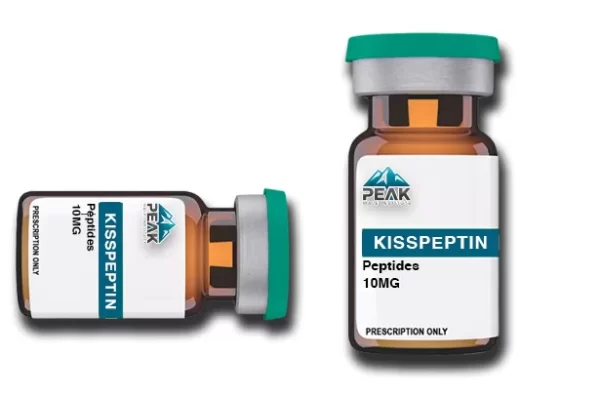Maintaining good health is an ongoing journey that necessitates vigilance and a proactive approach to healthcare. The yearly blood panel, a comprehensive blood test, stands as a crucial component in this journey. In this article, we will explore not only why annual blood panels are essential for managing overall health risks but also their pivotal role in assessing and guiding treatment options for both Erectile Dysfunction (ED) and Hormone Replacement Therapy (HRT) or Testosterone Replacement Therapy (TRT).
Understanding the Yearly Blood Panel
A yearly blood panel, also known as an annual blood test or comprehensive metabolic panel, is a routine medical examination that assesses various aspects of your health through a straightforward blood draw. This test encompasses a battery of measurements that help identify potential risk factors for various conditions, including Erectile Dysfunction (ED) and Hormone Imbalances. These tests can examine key markers that may contribute to the development of health issues:
- Cholesterol Levels: Elevated LDL (low-density lipoprotein) cholesterol levels can lead to cardiovascular issues, which may contribute to ED. Additionally, cholesterol levels are crucial for overall heart health.
- Good Pressure: Hypertension (high blood pressure) is a known risk factor for ED and can have a significant impact on cardiovascular health.
- Glucose Levels: Diabetes and pre-diabetes, characterized by elevated blood sugar levels, can damage blood vessels and nerves, affecting sexual function and overall health.
The Multifaceted Role of Yearly Blood Panels in Health Assessment and Treatment
- Baseline Assessment
Before beginning Hormone Replacement Therapy (HRT) or Testosterone Replacement Therapy (TRT), establishing a baseline assessment of your hormone levels is essential. This initial blood panel provides a clear picture of your hormone levels before any interventions, serving as a reference point for future comparisons.
- Hormone Imbalance Detection
Yearly blood panels play a crucial role in detecting hormone imbalances, which are often the primary reason for considering HRT/TRT. Conditions like hypogonadism (low testosterone) or menopause (low estrogen and progesterone) can significantly impact your quality of life. Through regular blood tests, these imbalances can be identified, and appropriate treatment plans can be developed.
- Tailoring Treatment Plans
By conducting a yearly blood panel before HRT/TRT, healthcare providers can tailor treatment plans to your specific hormonal needs. This personalized approach ensures that therapy is neither excessive nor insufficient, optimizing your health outcomes.
- Monitoring Progress and Adjustments
Once you commence HRT/TRT, regular monitoring of your hormone levels is vital to gauge treatment efficacy and safety. Yearly, Bi-Yearly, or even Quarterly blood panels provide a means to track progress over time, allowing for necessary adjustments to therapy as your body responds.
- Identifying Health Risks
Apart from assessing hormone levels, yearly blood panels also evaluate other critical health markers, such as cholesterol levels, liver function, and glucose levels. Identifying any underlying health risks or issues is paramount before beginning HRT/TRT, as certain conditions may contraindicate or require additional precautions during treatment.
- Safeguarding Against Complications
HRT/TRT can be highly effective in alleviating symptoms related to hormone imbalances. However, it’s essential to ensure that these therapies are administered safely and do not exacerbate existing health conditions. Yearly blood panels serve as a safeguard against potential complications by continually monitoring your health throughout your treatment journey.
- Preventing Adverse Effects
Adverse effects can occur when hormone therapy is administered without a thorough understanding of your baseline hormone levels and overall health status. Yearly blood panels minimize the risk of adverse effects by providing the necessary data to make informed decisions about the duration and intensity of HRT/TRT.
- Enhancing Quality of Life
Ultimately, the goal of HRT/TRT is to enhance your quality of life by restoring hormonal balance. Yearly blood panels ensure that your therapy is tailored to your unique needs and effectively addresses the symptoms that impact your well-being.
In Conclusion
A yearly blood panel is an indispensable step before embarking on Hormone Replacement Therapy (HRT) or Testosterone Replacement Therapy (TRT). This comprehensive assessment not only establishes a baseline of your hormone levels but also helps detect imbalances, tailor treatment plans, monitor progress, and identify potential health risks.
By conducting a yearly blood panel before starting HRT/TRT, you empower yourself to make informed decisions about your health and well-being. This proactive approach ensures that therapy is administered safely and effectively, leading to an improved quality of life and enhanced overall health. Remember that when it comes to HRT/TRT, knowledge is power, and a yearly blood panel is your first step towards a healthier future.
If you are interested in MALE PERFORMANCE TREATMENT OPTIONS, please visit the page in the link below, and or contact us at: (941) 304-5549 to set up your first consultation. For information on Special Offers for 1st Time Patients or Treatments, visit: Begin Your Transformation
Here are some relevant sources for the information provided:
- American Heart Association (AHA) – Website: https://www.heart.org/ The AHA provides information on cardiovascular health, including the importance of monitoring cholesterol levels and blood pressure.
- American Diabetes Association (ADA) – Website: https://www.diabetes.org/ The ADA offers insights into diabetes management and the role of blood sugar monitoring.
- National Institute of Diabetes and Digestive and Kidney Diseases (NIDDK) – Website: https://www.niddk.nih.gov/ NIDDK provides resources on diabetes and kidney health, including the importance of regular blood tests.
- Endocrine Society – Website: https://www.endocrine.org/ The Endocrine Society publishes guidelines and research related to hormone levels and hormone disorders.
- Mayo Clinic – Website: https://www.mayoclinic.org/ Mayo Clinic is a trusted source for general health information, including the importance of blood tests in health assessment.
- American Cancer Society (ACS) – Website: https://www.cancer.org/ ACS offers information on cancer screening and early detection, which often involves blood tests.
- U.S. National Library of Medicine (PubMed) – Website: https://pubmed.ncbi.nlm.nih.gov/ PubMed is a comprehensive database of medical research articles and studies, where you can find specific studies related to the topics discussed.
- WebMD – Website: https://www.webmd.com/ WebMD provides general health information and articles on a wide range of medical topics, including blood tests and hormone levels.




